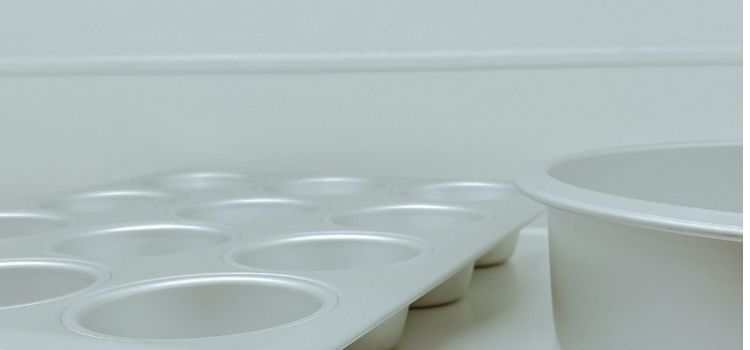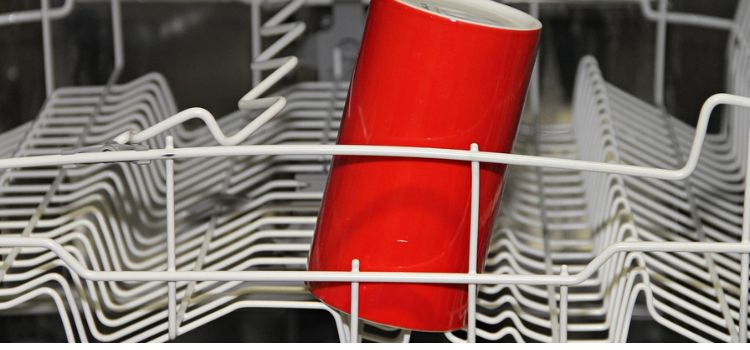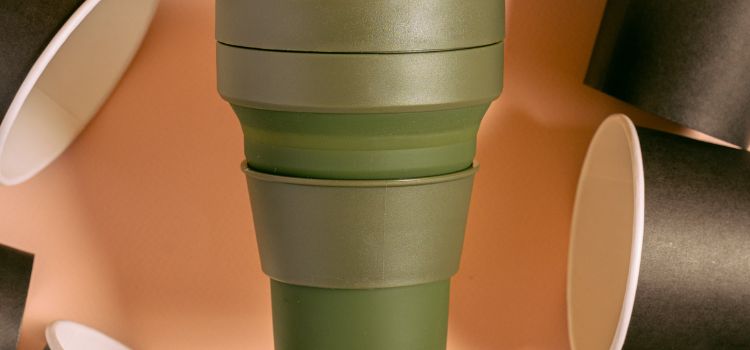A Comprehensive Guide
In today’s fast-paced world, convenience is critical in our daily lives. The cutting-edge kitchen has numerous apparatuses and utensils intended to make cooking and cleaning more open than at any other time. Silicone, a versatile and heat-resistant material, has become famous in kitchens due to its flexibility, durability, and non-stick properties.
However, as we try to streamline our routines, the question arises: Can you put silicone in the dishwasher? Although the dishwasher is a time-saving wonder, its intense water jets, high temperatures, and detergents can be aggressive.
In this exploration, we delve into silicone kitchenware to understand this material’s compatibility with the ability of dishwashing and uncover best practices for maintaining your silicone tools and utensils. Join us as we navigate the dos and don’ts, ensuring your culinary adventures are efficient and sustainable.
Can You Put Silicone in the Dishwasher?
Yes, most silicone kitchenware is dishwasher safe. This includes silicone bakeware, utensils, and food storage containers. However, checking the manufacturer’s instructions before putting your silicone items in the dishwasher is essential, as some exceptions may apply.
Here are a few tips for washing silicone in the dishwasher:
- Place silicone items on the top rack of the dishwasher, away from the heating element.
- Avoid overloading the dishwasher, which could crush or damage your silicone items.
- Use a mild dishwashing detergent. Ignore using harsh chemicals or abrasive cleaners, as these can damage silicone.
- Do not run the dishwasher on a high-heat cycle. A regular cycle is sufficient for cleaning silicone items
Here are some of the benefits of using silicone kitchenware:
- Silicone is non-toxic and safe for food contact.
- Silicone is heat-resistant and can withstand temperatures up to 500 degrees Fahrenheit.
- Silicone is non-stick and easy to clean.
- Silicone is durable and long-lasting.

What silicone can I use in a dishwasher?
Silicone is a versatile material used in various products, including kitchenware, bakeware, and food storage containers. It is known for its heat resistance, non-stick properties, and durability.
The answer is more complex than a yes or no. It depends on the type of silicone and the specific product. Some manufacturers design some silicone products to be dishwasher safe, while others do not.
How to tell if silicone is dishwasher safe
The best way to tell if a silicone product is dishwasher safe is to check the manufacturer’s instructions. If the instructions do not say whether the product is dishwasher safe, it is best to err on caution and hand wash it.
Another way to tell if silicone is dishwasher safe is to look for the dishwasher safe symbol. This symbol is a square with a glass and a plate inside. If the silicone product has this symbol, it is dishwasher safe.
What types of silicone are dishwasher safe?
The most common type of silicone that is dishwasher safe is 100% silicone rubber. This type of silicone is non-toxic and does not contain any harmful chemicals. It is also heat resistant and durable.
Another type of silicone that is dishwasher safe is food-grade silicone. This specific type of silicone is designed for use in food contact applications. It is gentle and does not contain any harmful chemicals.
What types of silicone should not be used in a dishwasher?
Silicone should not be used in a dishwasher for some types. These include:
- Silicone products that contain fillers. Fillers can make silicone less durable and more likely to break or crack in the dishwasher.
- Low-quality materials make silicone products. Low-quality silicone products may not be able to withstand the heat and pressure of the dishwasher.
- They damaged silicone products. Damaged silicone products may not be able to withstand the heat and pressure of the dishwasher.
Can you put silicone spatulas in the dishwasher?
Most silicone spatulas are dishwasher-safe. However, it is essential to check the manufacturer’s instructions. Some silicone spatulas may have special instructions, such as not to wash them on the heated dry cycle. If your silicone spatulas are dishwasher safe, you can keep them in the top rack of the dishwasher and run them on a regular cycle. Be sure to space the spatulas out so they do not touch each other, as this can prevent them from getting clean. If you hand-wash your silicone spatulas, soak them in warm, soapy water for a few minutes. Then, scrub them gently with a sponge or dishcloth. Rinse the spatulas thoroughly with clean water and dry them with a clean towel.
Here are some tips for cleaning silicone spatulas:
- Avoid using abrasive scrubbers or scouring pads, as these can damage the silicone.
- If you have any stubborn stains, try soaking the spatulas in baking soda and water for 30 minutes before scrubbing.
- You can use a toothpick or a soft brush to remove food particles from the spatula head.
- Once the spatulas are clean, be sure to dry them overly to prevent the growth of bacteria.
Can silicon be dishwasher safe?
Most silicone products are dishwasher-safe. However, checking the manufacturer’s instructions before putting any silicone product in the dishwasher is essential. Some silicone products may have special care instructions, such as avoiding the top rack or using a mild detergent. When washing silicone in the dishwasher, placing it on the top rack is best. This will help to prevent it from melting or warping. Ignoring harsh detergents or abrasive scrubbers is essential, as these can damage the silicone.
Here are some tips for washing silicone in the dishwasher:
- Place silicone products on the top rack.
- Use a mild detergent.
- Avoid using harsh detergents or abrasive scrubbers.
- Inspect silicone products for damage after washing.
FAQ(Frequently Asked Questions)
- Can I safely put silicone products in the dishwasher?
Silicone products are generally safe to put in the dishwasher, but checking the manufacturer’s instructions is essential. Some silicone items may be dishwasher-safe, while others may not withstand the high heat and aggressive detergents used in dishwashers. Always refer to the product’s care instructions to be sure.
- What are the benefits of washing silicone in the dishwasher?
Using a dishwasher to clean silicone kitchen items can save time and effort. It provides thorough cleaning and sanitization, particularly useful for things like silicone bakeware or cooking utensils that come into contact with food regularly.
- Are there any precautions when putting silicone in the dishwasher?
While many silicone products can go in the dishwasher, placing them on the top rack is advisable to avoid direct exposure to the dishwasher’s heating element. Additionally, it’s best to use a gentle, eco-friendly dishwasher detergent to prolong the life of your silicone items.
- What silicone items should not be put in the dishwasher?
Not all silicone products are dishwash-safe. Avoid putting items with added features like wooden or metal handles, intricate designs, or things labeled as hand wash only. Delicate silicone molds, such as those for chocolate or complex shapes, should also be hand-washed to preserve their detail.
- How should I care for silicone items if I prefer not to use the dishwasher?
If you prefer hand-washing your silicone items, use a mild dish soap and warm water. Silicone is not difficult to clean and doesn’t hold smells or stains. After washing, thoroughly rinse and air-dry your silicone products to maintain their quality and longevity.

Conclusion
In conclusion, whether silicone items can be safely placed in the dishwasher depends on the specific product and its manufacturer’s recommendations.
Although many high-quality silicone products are dishwasher-safe, it is essential to consult the packaging or accompanying literature to confirm their compatibility with the dishwasher.
The combination of dishwasher temperature and detergent can affect the integrity of the silicone over time, potentially causing degradation or loss of functionality. Hence, it is reasonable to practice alert and comply with the maker’s rules to guarantee the life span and execution of your silicone things.
When in doubt, hand washing using mild soap and warm water remains a reliable option to preserve the quality of your silicone resources.

